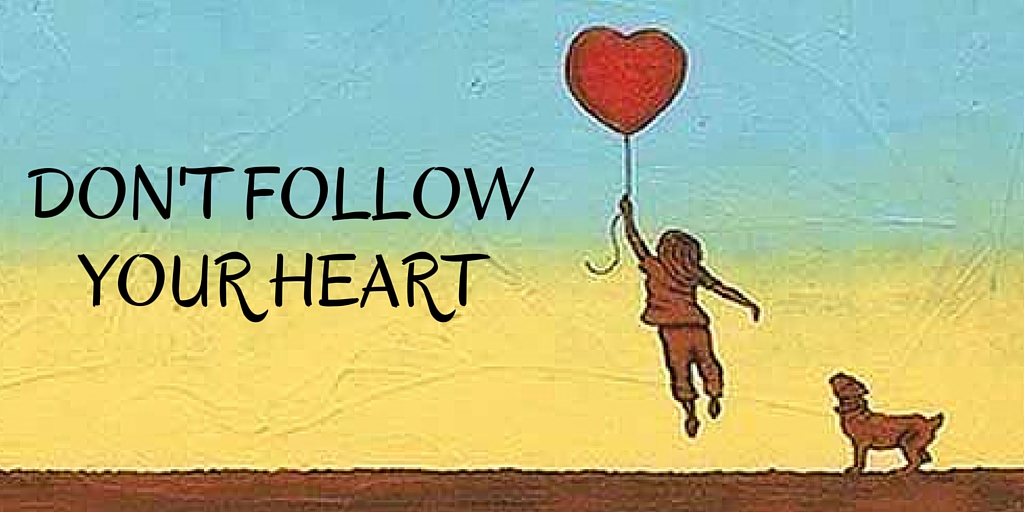Don't Follow Your Heart
 The call to “follow your heart” is quickly jumping up the idiom ladder as one of the most socially appropriate things to say. This phrase is a slight rearrangement of Oprah Winfrey’s mantra to “be yourself” (which she admits has made her a lot of money).
The call to “follow your heart” is quickly jumping up the idiom ladder as one of the most socially appropriate things to say. This phrase is a slight rearrangement of Oprah Winfrey’s mantra to “be yourself” (which she admits has made her a lot of money).
Following your heart sounds like solid advice. The words carry a soft sense of familiarity that feels soothing and inviting. They also provide the right combination of ambition and responsibility that feeds our hunger for empowerment. Placed together, it sounds right and feels right. But what does this message actually mean?
If you consider the message behind these words, you’ll discover why they make you feel good. A message is only as good as its meaning and this is precisely why following your heart is bad advice.
It’s self-serving
I’m the only one who can determine what my heart says. Even my most trusted friend cannot challenge what I claim is in my heart nor can he disagree with what heart is telling me. Thus, the instruction to follow your heart is code for “do whatever you want to do.” This might not matter when you’re deciding what sandwich to order, but if you weigh all your decisions with a self-serving scale, you will experience (and create) a lot of struggles.
It’s self-seeking
Following your own heart means your gaze will be focused inwardly instead of outwardly. This advice may work for the person who is wise and experienced, but the people who are most primed to follow their hearts are the ones who are short on experience and long on self-indulgence.
It’s self-glorifying
The key assumption in "follow your heart" is the idea that the heart is good, pure, and well-intentioned (otherwise, you would be a fool to follow it). While I would like this to be true of myself, I have to realize that the intentions of my heart are often sinful.
